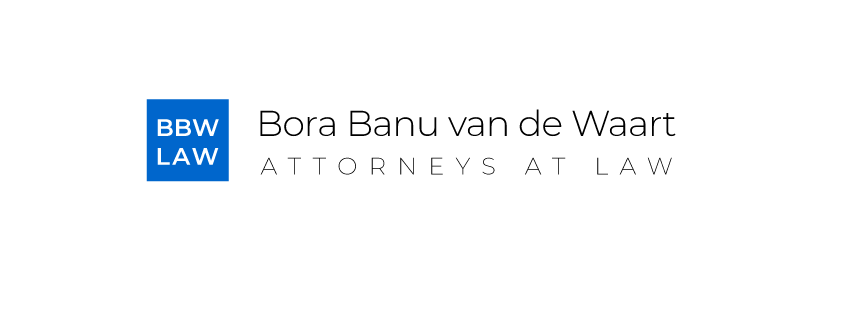Legal News by BBW LAW, November 2022
Thu | 17.11.2022
Legal
LEGAL NEWS & INSIGHTS
Major changes to the Labour Code requiring company action
The Labour Code was amended as of 19 October 2022 by way of Law 283/2022 which entered into force as of 22 October 2022.
These are the most significant changes to the Labour Code in years. Such changes should be carefully assessed by each organization in order to identify the appropriate actions for their implementation, the update and/or amendment of employment agreements and internal regulations and/or policies.
The main amendments target the following aspects:
- New elements must be added to the individual employment agreements
- New dismissal prohibitions apply
- New elements must be added to the company’s internal regulation
- Employee’s right to have more employment agreements in the same time is clarified
- New right of the employee – to request being moved on another job having more favourable working conditions
- New type of leave for the employee – carer leave
- Days off for family emergencies
- Flexible working arrangements
1. New elements must be added to the individual employment agreements
The main elements which must be added to the individual employment agreements as of 22 October 2022 are the following:
- TRIAL PERIOD CONDITIONS – employer must now include in the individual employment agreement the conditions that employees must meet to successfully pass the trial period, which need to be therefore communicated to employee in advance.
- SALARY COMPONENTS – the base salary and its components – such as different bonuses or benefits must be separately provided by employer in the individual employment agreement. In other words, it is no longer permitted for the salary to be reflected as a whole with all its components.
- SALARY PAYMENT METHOD – the method of salary payment (cash/bank transfer) must be expressly specified in the individual employment agreement.
- FINANCIAL BENEFITS – employer must now specifically provide in the individual employment agreement if it is covering the cost of the employee’s private medical insurance, of additional contributions to the optional or occupational pension scheme, in accordance with the conditions laid down by law, as well as any other rights granted by the employer, at its discretion, if they include cash benefits offered or paid by the employer as regards employee’s professional activity.
Important: Including such financial benefits directly in the individual employment agreement could significantly limit their flexibility in granting or withdrawing such benefits as any subsequent change thereto requires both parties’ consent by way of an addendum to the individual employment agreement.
- REIMBURSMENT OF TRANSPORTATION COSTS – Information regarding the facilitation of transportation or reimbursement of expenses for transport between different workplaces, for the employees that do not have a fixed place of work, is to be specified in the individual employment agreement.
2. New dismissal prohibitions apply
Law 283/2022 introduces new prohibitions on dismissal – dismissal may not be ordered for the exercise of employees’ rights regarding (a) information on the essential elements of the employment relationship, (b) the trial period, (c) the training programs, (d) the individualized work schedule, as well as (e) for the exercise of rights expressly recognized under Article 39 para. (1) of the Labour Code.
In addition, employees may not be dismissed during leaves: carer leave, paternity leave, or during absence from work due to family emergencies.
If an employee considers he or she has been dismissed for exercising the abovementioned rights, he or she may request the employer to provide in writing additional justification for the dismissal decision in these specific cases.
3. New elements must be added to the company’s internal regulation
Two new set of rules must be incorporated in the internal regulation (a) rules on prioir notice and (b) on the general employee training policy, if any.
It is now also expressly established that the internal regulation must be communicated to employee on the first work day (this was done in practice but now it’s expressly provided by law) and that employers are allowed to inform employees about the internal regulation in electronic form, if it may be accessed, stored and printed by the employee.
4. Employee’s right to have more employment agreements in the same time is clarified
Law 283/2022 clarifies an employee may have in place more individual employment agreements for different employers or the same employer, provided there is no overlap in schedule. This is a major clarification with the potential of ending the common overlapping of working hours deriving from more employment agreements.
In addition, it is expressly provided that unfair treatment against the employee for exercising this right is forbidden.
5. New right of the employee – to request being moved on another job with more favourable working conditions
Law 283/2022 establishes a new right for the employee – the right to request to be assigned to a vacant position offering more favorable working conditions, if the following conditions are met:
- employee successfully passed the probationary period;
- employee has worked for the same employer for minimum 6 months.
We note employer has no obligation to accept such request from the employee, but it must respond accurately. Otherwise, the refusal may trigger a work conflict in court.
6. New type of leave for the employee – carer leave
The employer has the obligation to grant carer’s leave to the employee in order to provide care or personal support to a relative or a person who lives in the same household as the employee and who needs care as a result of a serious medical problem.
The leave period is of 5 working days in a calendar year and is granted at the written request of the employee. Internal policies may provide for a longer duration.
7. Days off for family emergencies
Maximum 10 working days in a calendar year may be granted if the employee needs to be absent from work in unforeseen circumstances caused by a family emergency due to illness or accident, which makes the employee’s immediate presence indispensable.
The employer and the employee are to agree on the arrangements for recovering the period of absence in this context.
8. Flexible working arrangements
Employee may request and establish together with the employer, individualized (flexible) work schedules, including for carer’s leave. Use of remote working arrangements, flexible work schedules, individualized work schedules or reduced working time may be used.
In case the employer refuses the employee’s request for flexible working time arrangements, the employer must justify such refusal in writing within 5 days of receiving the request.
Disclaimer: The information provided herein is in no way exhaustive and does not, and is not intended to, constitute legal advice. Readers of this Article should contact their attorney to obtain advice with respect to any particular legal matter.
This article is provided by our Legal Partner BBW LAW l BORA BANU van de WAART.
2026
-
February (1)
2025
-
November (1)
-
October (1)
-
September (1)
-
July (1)
-
June (1)
-
April (1)
-
February (2)
-
January (1)
2024
-
November (1)
-
October (1)
-
July (1)
-
May (1)
-
March (1)
-
February (1)
-
January (1)
2023
-
November (1)
-
September (2)
-
August (2)
-
June (1)
-
May (1)
-
April (2)
-
March (1)
-
February (2)
-
January (2)
2022
-
December (3)
-
November (4)
-
October (3)
-
September (4)
-
August (3)
-
July (6)
-
June (4)
-
May (4)
-
April (8)
- Marketing News by diARK - April 2022
- Finance News by Mazars Romania - April 2022
- Experience the Perfect Chauffeur Transfer with David Intercar
- Mobility News by Business Lease - April 2022
- NRCC MEMBER IN SPOTLIGHT, WOLTERS KLUWER
- Crowe Romania and DeclaratiaUnica.ro engage in the automation of the single return form and the offering of personalized consultancy
- Cryptocurrency News by Bitcoin Romania, April 2022
- Legal News by BBW LAW - April 2022
-
March (6)
-
February (4)
-
January (5)
2021
-
December (3)
-
November (4)
-
October (2)
-
September (2)
-
August (1)
-
July (5)
-
June (3)
-
May (5)
-
April (4)
-
March (7)
- Cryptocurrency News by Bitcoin Romania, April 2021
- HR News by CNA International Executive Search Romania, March
- Real Estate News by CTP Invest, March 2021
- Sale-Purchase of Agricultural Land Located Outside Build-Up Areas
- MEET THE NRCC BOARD CANDIDATES 2021
- Fleet Management – Complete Makeover or Small Adjustments?
- Cryptocurrency News by Bitcoin Romania, March 2021
-
February (5)
-
January (6)
2020
-
December (2)
-
October (2)
-
September (3)
-
August (2)
-
July (6)
- NRCC Member in Spotlight Interview - Autonom
- Insolvency Proceedings: New Rules
- Member in Spotlight, UniCredit Bank
- Financing opportunities overview for large enterprises, SMEs and other organizations
- Companies: Simplification of Formalities
- Call for Leaders | What is your readiness score to benefit from the EU SURE initiative?
-
June (5)
-
May (8)
- The State of Alert. New rules for the collective proceedings
- The Retail Industry
- EU grants up to 6 Mil Euro for SME-s investment projects
- Member in spotlight, Heisterkamp Transportation Solutions
- State of Alert...What Is New
- The forced transformation of the automotive industry – Mazars analysis
- State of Alert in Romania
- Reducing the Impact of the Pandemic
-
April (6)
-
March (2)
2019
-
November (2)
-
July (1)
-
June (1)
-
March (2)
-
January (1)
2018
-
October (2)
-
September (1)
-
August (1)
-
July (3)
-
June (2)
-
May (1)
-
April (1)
-
March (3)
-
February (13)
- NRCC Elections 2018 - Elena Badea
- NRCC Elections 2018 - Loreda Dragomir
- NRCC Elections 2018 - Simina Fodor
- NRCC Elections 2018 - Manuel Herraiz Orti
- NRCC Elections 2018 - Tom Leene
- NRCC Elections 2018 - Mircea Moga
- NRCC Elections 2018 - Ronald Oort
- NRCC Elections 2018 - Razvan Pascu
- NRCC Elections 2018 - Alexandru Popescu
- NRCC Elections 2018 - Mihaela Tudor
- NRCC Elections 2018 - Loredana Van de Waart
- NRCC Elections 2018 - Edwin Warmerdam
- NRCC Elections 2018 - Philip Aarsman
2017
-
November (1)
-
September (1)
-
August (2)
-
May (1)
-
April (2)
-
March (1)
2016
-
November (1)
-
September (8)
-
June (1)
-
February (2)








